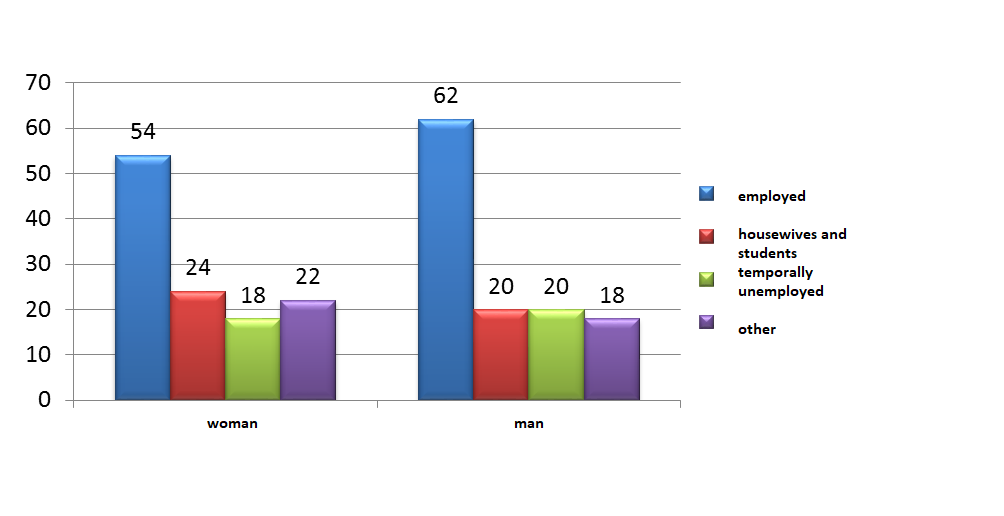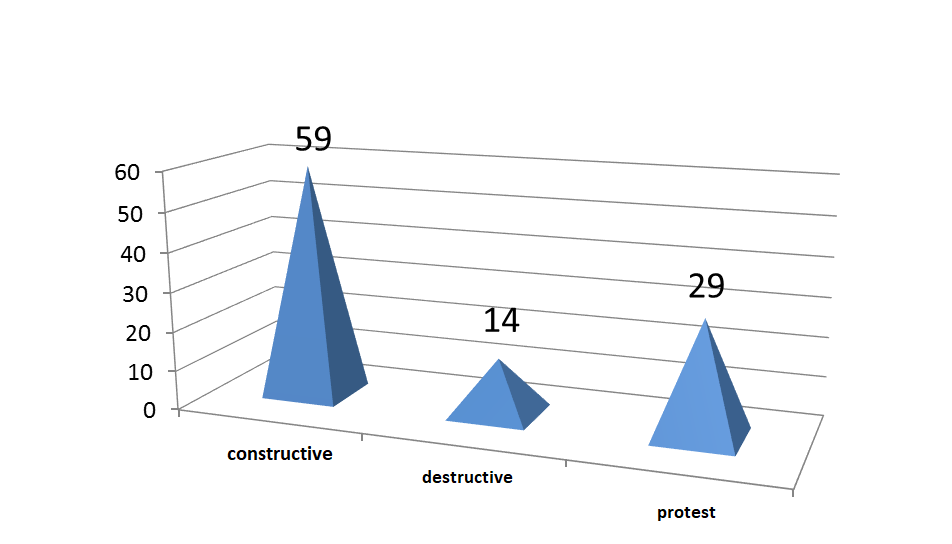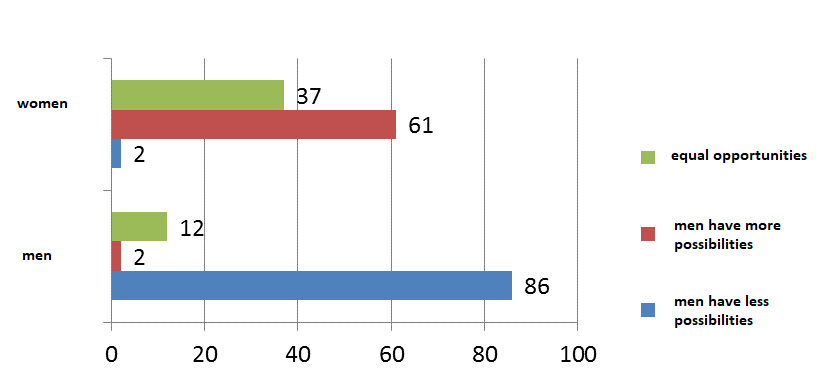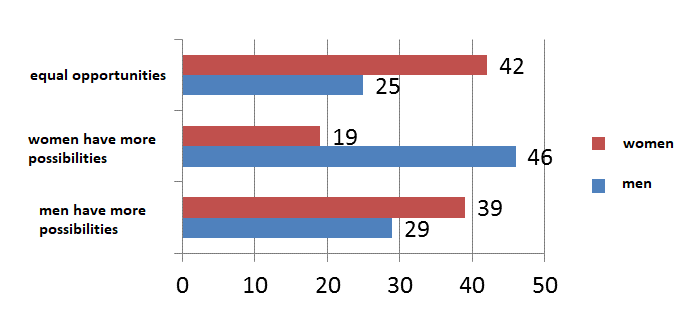Abstract
The positive attitude of society and the state towards people challenged people, which replaced social deprivation, has actualized the problem of their integration into society. The authors of the article consider inclusive education as a specific mechanism for the social integration of a physically challenged child. The authors analyzed the main barriers that impede the implementation of the goals and objectives of inclusive education in Russia. With all the positive changes, a socio-psychological barrier remains nowadays. It is presented by the lack of tolerance and even open rejection of challenged children in everyday household interaction expressed by teachers of public school and normally developing children. The stability of this barrier can be explained by the long-standing tradition of teaching challenged children in special (correctional) schools. Based on the laws of social psychology, the authors suggested that the lack of understanding of the problems of challenged children in public schools and the lack of a pronounced desire among healthy peers to interact with them is a reflection of general tendencies towards challenged people in Russian society. The article presents and analyzes the results of the study of psychological attitudes towards challenged people in Russian society conducted in order to develop the ways to overcome the socio-psychological barrier at the present stage of the development of inclusive education in Russia. The method of questionnaire was used in the course of the presented research.
Keywords: Challenged studentspeople with special needssocial integrationinclusive educationsecondary schoolsocio-psychological barrier
Introduction
Integration tendencies which penetrated social sphere and modern education are designed to harmonize society and provide every citizen with equal opportunities to realize his life potential. The basic documents regulating the activities of social sphere and education system, such as the UN Convention on the Rights of Persons with Disabilities, which Russia ratified in 2008, the laws “On the Social Protection of Challenged Persons in the Russian Federation” and “On Education in the Russian Federation”, declare equal access of students with health characteristics to education at all levels, provide for anti-discrimination measures in all areas of education, as well as expand the family power in the determination of the life strategy of a challenged child. In addition, from September the 1st, 2016, the development of inclusive educational practices in the Russian Federation is governed by the Federal State Educational Standard of Primary General Education for Students with Disabilities and Intellectual Disabilities. New educational standards provide for the differentiation and individualization of the educational trajectory of challenged students in public school in accordance with their diagnoses. Thus, inclusive education is an effective way of social integration of a challenged person (Knyaginin, Meshkov, & Utolin, 2016; Tsibizova & Zimin, 2017), when challenged children and adolescents study together with normally developing pupils under conditions of public school.
Problem Statement
In Russia, the tradition of social exclusion of challenged children has been maintained for a long period of time, implying their stay in boarding schools and training in special (correctional) educational institutions. As a result, nowadays Russia, unfortunately, does not refer to the countries where the lives of challenged people are as comfortable as possible (Tsibizova, Novikov, & Pishchulin 2014). Several experts state a number of material, technical and technological barriers (Voznyak, 2015; Voznyak, 2016; Rachkovskaya, 2016) that impede the implementation of inclusion: the acute shortage of special-needs experts who are ready to provide challenged children and the families where they live (Mastyukova & Moskovkina, 2004); insufficient use of distance technologies in the process of teaching children with special needs (Meshkov, 2014; Proletarsky & Neusypin, 2014); the lack of desire and readiness of many substitute families to take up a child with special needs; challenges children often live in risk group families and dysfunctional families; there is usually no differentiation in penal system - a child with reduced intelligence and an intellectually intact offender who is well aware of the severity and consequences of the offense, etc.
Research Questions
The socio-psychological barrier is the most meaningful and painful for challenged children. This barrier is expressed in the lack of tolerance and open rejection by teachers of public school (Rachkovskaya, 2015) and normally developing peers of children with special needs in everyday interaction (Gebauer, 1997; Peters, 2003; Donvan & Zucker, 2016). Social psychologists found out that children usually reflect as a mirror the attitude of parents and teachers to people with special needs (Flake-Fobson, Robinson & Skin 1993; Schaeffer, 2003). In this regard, the authors carried out a socio-psychological study aimed at determining attitudes towards people with special needs in Russian society.
Purpose of the Study
The purpose of the study is to identify attitudes towards people with special needs in Russian society in order to develop ways to overcome the psychological barrier at the present stage of the development of Russian society and education.
Research Methods
During the course of research the questionnaire method was used; the authors developed a special questionnaire “Awareness of the population about inclusion”. The study was conducted in 2017 in the Chechen Republic, 362 respondents took part in the survey, including 174 men and 188 women. To ensure objectivity, the organization of the study was carried out in such a way that it represented the opinions of respondents of different levels of education.
In addition, the authors tried to include in the study of respondents who are employed, temporarily unemployed, housewives and students. The overwhelming majority of survey respondents had a job (62% of men and 54% of women, respectively), the share of housewives and students - 20% of men and 24% of women, the share of temporarily unemployed - 18% of men and 22% of women.

Findings
The findings of the results obtained are presented below. To the question of the questionnaire “Is the term “inclusion” familiar to you?” the overwhelming majority of respondents without higher education answered affirmatively, while the number of women exceeded the number of men (78% and 72% respectively). It is natural that respondents with higher education, both men and women, answered to this question much more often and affirmatively (94% of men and 87% of women). It is possible to assume that employed respondents and respondents with higher education are better included in public life and receive new information more quickly.
Answering the following question “From what sources do you get the information on the problems of people with special needs?” 84% of respondents, men and women, indicated that they receive information on the problems of people with special needs from different sources, including television, the Internet and people around at the same time. 12% said that they know about the problems of people with special needs from personal communication with them, and only 4% said that they receive information from scientific and popular scientific literature, newspapers and journals.
To the question of the questionnaire “Are you interested in the problems of people with special needs (disability)?” The answers of the respondents were ranked as follows. 97% of all the respondents said that they are interested in the problems of people with special needs, and 12% of them honestly said that they are interested in this problem only to some extent, since this information is given on television, discussed in the press and in their workplaces. 3% of the respondents said that in general this problem does not interest them, and it is these respondents who, according to them, are very busy with their work, that they simply do not have the time and physical strength to be distracted by something not related to their main activity. Mostly, they are young people. Among women, such answers were not observed, probably due to the greater emotionality of women and the development of their compassion and empathy.
Interesting results were shown by the analysis of the answers to the question “Which of the following aspects do you associate with the concept of “disability”? We conditionally divided the answers to this question into three categories:
- constructive (57% of respondents);
- destructive (14% of respondents);
- protest (29% of respondents).

To constructive aspects the authors attributed such associations as cooperation and equality, while compassion may additionally be presented in this group. This means that respondents, experiencing a certain amount of compassion, nevertheless, recognize the possibility of cooperation, seeing a person with special needs as a person and recognizing his intellectual abilities.
The authors regarded destructive associations as the impossibility of the creation of equitable cooperation, pity, hostility, and the recognition of people with special needs as helpless ones. Thus, respondents who chose destructive response options did not recognize the possibility of full participation of people with special needs in society, considering them to some extent as outcasts in the society of healthy people.
The authors considered protest responses to be those in which the respondents recognized the possibility of working with people with special needs, but had a steady feeling of hostility or pity towards them. Obviously, with such an attitude it is hardly possible to build constructive relationships based on equal cooperation.
The survey results showed that the majority of respondents (74%) never participated in charity events to help people with special needs. 19% indicated that they rarely participate in such events, and only 7% of the respondents actively participate in charity events.
Ambiguous answers were received when answering the question of the questionnaire, “Where, in your opinion, should children with special needs (challenged children) study?” When answering this question, the opinions of the respondents were divided almost equally - 46% of respondents answered that these children should be enrolled in regular kindergartens and secondary schools, that is, they indirectly supported the idea of introducing inclusive education. Another part of the respondents disagreed with the ideas of inclusive education, as the respondents noted that children should learn “at home” (17%), “in specialized educational institutions” (19%), “distantly” (18%).
To the question “Is it easy for people with special needs to find work?” The majority of respondents answered negatively (51% of respondents), 8% of respondents believed that for people with special needs it was often easier to find work than for ordinary people, 27% of respondents honestly admitted that they do not know how to answer this question, 14% of respondents chose the answer option “not always”, probably not quite understanding what it was all about. It is obvious that the majority of respondents did not have to seriously think about the problem of employment of people with special needs.
When asked about the possibility of men and women with special needs to participate in leisure activities (for example, hobby groups and sports clubs), men almost completely rejected the possibility for men with special needs to be engaged in hobby groups and sports clubs, 86% of male respondents answered negatively. Women, on the contrary, believed that men have more possibilities in this sphere of life activity (61%), and only 37% of women believed that both men and women with special needs had equal opportunities in this case.

Almost unanimously, all the respondents indicated that men and women with special needs have equal opportunities in obtaining medical care (95% of the respondents).
However, the overwhelming number of men believes that women with special needs have more opportunities to start a family (96%), explaining this by the fact that women do not need to support a family, and therefore, a man must earn in order to provide for a family.
Women, answering this question, were not so categorical. 58% of respondents indicated equal opportunities in creating a family, both of men and women with special needs, 8% of women believed that for a woman with special needs it was easier to start a family than a man, 32% of women surveyed say that men with special needs had more chances to start a family.
The male respondents and the female respondents also commented differently the participation in public life. 39% of women believed that men had more possibilities for participation in public life, 19% of women respondents were confident that women had more possibilities for social activity, 42% of respondents were confident that both men and women had equal possibilities of the participation in this form of social activities.
Men, by contrast, were confident that women had more of these possibilities (46% of the men surveyed). The rest were divided almost equally between the following opinions: the possibilities were equal (25%), men had more possibilities - 29%.

Conclusion
To conclude with, it is necessary to note that Russia has its own unique, though not so long-term experience of social integration of people with special needs. A certain system of views on this problem has already been formed, the main directions of social integration of challenged people have been identified, such as: the explanation of the problems, peculiarities of life activity of challenged people and the need for their social protection to the public; persons with special needs receive high-quality general and vocational education in public educational institutions, the employment of challenged people (depending on the severity of diagnosis); the development of creative abilities in leisure activities; socio-psychological rehabilitation of families with challenged people; active involvement of volunteers to work with challenged people; the dissemination of the unique experience of specialists who have developed effective methods and approaches to the process of social integration of people with different diagnoses, including through international professional cooperation.
References
- Donvan, J.J., Zucker, C.B. (2016). In a different key: the story of autism. New York, Crown Publishing Group.
- Flake-Fobson, K., Robinson, B.E., Skin, P. (1993). The development of the child and his relationship with others. Moscow, Center for Universal Values.
- Gebauer, K. (1997). Turbulenzen im Klassenzimmer. Emotionales Lernen in der Schule. Stuttgart: Klett-Cotta.
- Knyaginin, V.N., Meshkov, N.A., Utolin, K.V. (2016). Advanced Education in the Information Society. International Review of Management and Marketing, 6, 3, 89-99.
- Mastyukova, E.M., Moskovkina, A.G. (2004). Family education of children with developmental disabilities. Moscow, VLADOS.
- Meshkov, N.A. (2014). Ways and prospects of modernization and innovative development of Russian education in the conditions of the information society. Innovations in education, 3, 141-150.
- Peters, T. (2003). Autism: from theoretical understanding to pedagogical influence. Moscow, VLADOS.
- Proletarsky, A.V., Neusypin, K.A. (2014). Features of the use of modern information technology in education. European Social Science Journal, 1-1 (40), 63-65.
- Rachkovskaya N.A. (2015). Burnout syndrome of a specialist working under inclusion conditions // Science and Modernity - 2015. (pp. 133-136). Moscow: Moscow State Regional University.
- Rachkovskaya, N.A. (2016). Education of a child with special needs in public school: the possibilities and problems of individualization. Bulletin of the Moscow State Regional University. Series: Pedagogy, 4, 53-61.
- Schaeffer, D. (2003). Children adolescents: the psychology of development. St. Petersburg, Peter.
- Tsibizova, T.Yu., Novikov, R.A., Pishchulin, V.I. (2014). On the issue of social habilitation of persons with health restrictions in the pre-university training system. Theoretical and practical research of the XXI century: Proceedings of the international scientific-practical conference. (pp. 259-265). Moscow: Moscow State Regional University.
- Tsibizova, T.Yu., Zimin, V.N. (2017). Development of a way to implement the habilitation function of students and graduates of educational organizations in modern conditions. Automation. Modern technologies, 71.10, 465-468.
- Voznyak, I.V. (2015). Education of children with special needs: modern approaches, problems and development prospects. Kazan Pedagogical Journal, 4 (111), Part 1, 109-113.
- Voznyak, I.V. (2016). The development of the value-motivational component of teacher readiness for inclusive education of children. European Social Science Journal, 2, 246-255.
Copyright information

This work is licensed under a Creative Commons Attribution-NonCommercial-NoDerivatives 4.0 International License.
About this article
Publication Date
29 March 2019
Article Doi
eBook ISBN
978-1-80296-057-0
Publisher
Future Academy
Volume
58
Print ISBN (optional)
-
Edition Number
1st Edition
Pages
1-2787
Subjects
Sociolinguistics, linguistics, semantics, discourse analysis, science, technology, society
Cite this article as:
Minazova, V., Rachkovskaya, N., & Serdyukova, E. (2019). Inclusive Education In Russia: The Study And Overcoming Of Socio-Psychological Barrier. In D. K. Bataev (Ed.), Social and Cultural Transformations in the Context of Modern Globalism, vol 58. European Proceedings of Social and Behavioural Sciences (pp. 1042-1049). Future Academy. https://doi.org/10.15405/epsbs.2019.03.02.120
